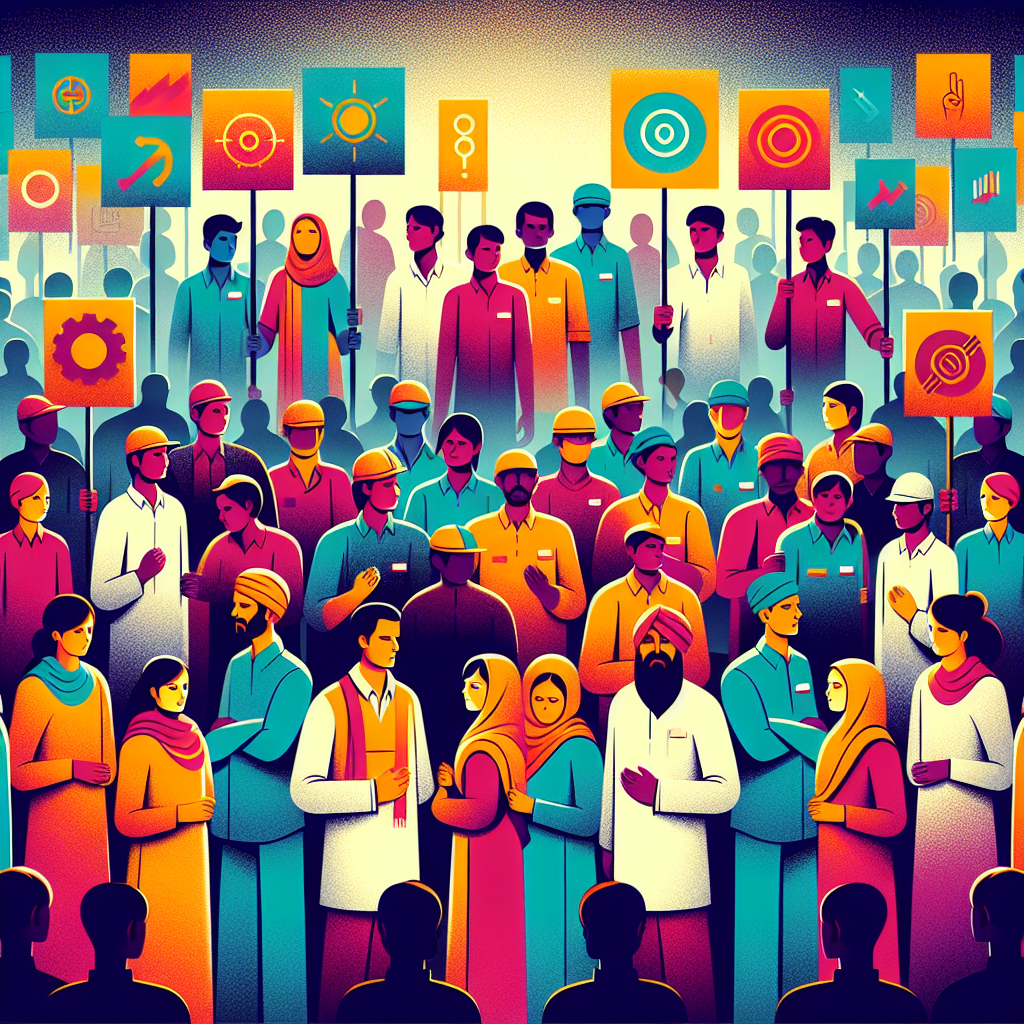According to data gathered by Google and shared exclusively with BBC 100 Women, there has been a rise in online search queries related to “climate anxiety.” Studies also suggest that women are more affected by climate anxiety than men. While the visible signs of climate change, such as wildfires, floods, and droughts, are widely reported, the impact of climate change on human minds is often overlooked. Climate anxiety, defined as distress about the impacts of climate change, has been reported globally, particularly among children and young people. Data from Google Trends shows a significant increase in search queries related to “climate anxiety” in multiple languages.
The rise in searches related to climate anxiety is not limited to English-speaking countries. Search queries in Portuguese, simplified Chinese, and Arabic have also increased significantly. However, these languages are not the most commonly searched in relation to climate anxiety. The data does not suggest that people in countries with higher search volumes are more prone to experiencing climate anxiety. Google Trends combines search queries for “climate anxiety” and “eco-anxiety,” which have slightly different meanings but are often used interchangeably.
Nordic countries, including Finland, Sweden, Denmark, and Norway, have the highest share of global search queries related to climate anxiety. However, this ranking is adjusted to account for differences in overall search volume, allowing smaller countries to top the list. Countries in the Global South, such as Chile, the Philippines, and South Africa, represented smaller shares of search queries, but countries with low search volumes were excluded from the analysis. Google has also observed a global increase in search queries about the future of the planet and the environment in the last 12 months.
Research suggests that women are more predisposed to climate anxiety than men. Studies have shown that female respondents report greater levels of concern and negative emotions about climate change compared to male respondents. Possible explanations for this include women being more open to discussing emotions and being at greater risk of experiencing the real-life impacts of climate change. Women may also worry more about climate change due to gender-based inequalities and the indirect and longer-term impacts on their well-being.
The Intergovernmental Panel on Climate Change (IPCC) has acknowledged the mental health impacts of climate change, and discussions about mental health will be featured at this year’s COP28 in Dubai. As the physical impacts of climate change continue to rise, there is increasing attention on its effects on mental health. The rise in search queries related to climate anxiety reflects a growing desire for understanding and action.
Original news source: Climate change: Rise in Google searches around ‘anxiety’ (BBC)
Listen
Slow
Normal
Fast
Group or Classroom Activities
Warm-up Activities:
– News Summary
Instructions: Divide the class into small groups and give each group a copy of the article. Instruct the groups to read the article and create a concise summary of the main points. After a designated amount of time, have each group share their summary with the class and discuss any differences or similarities between the summaries.
– Opinion Poll
Instructions: Divide the class into pairs. Instruct each pair to discuss their personal opinions on climate anxiety and its impact on mental health. After a few minutes, have each pair conduct a mini opinion poll by asking a few classmates for their opinions on the topic. Each pair should record the responses they receive. Finally, have a class discussion to share the results of the opinion poll and discuss any interesting findings.
– Vocabulary Pictionary
Instructions: Write a list of key vocabulary words from the article on the board. Divide the class into teams and assign a team member to be the drawer. One team at a time, a team member will choose a word from the list and have one minute to draw a visual representation of the word on the board. The other team members must guess the word based on the drawing. The team with the most correct guesses at the end wins.
– Pros and Cons
Instructions: Divide the class into small groups and give each group a sheet of paper. Instruct each group to create a pros and cons list related to the topic of climate anxiety and its impact on mental health. After a designated amount of time, have each group share their lists with the class and facilitate a discussion about the different perspectives and arguments presented.
– Future Predictions
Instructions: In pairs, have students discuss and make predictions about the future impact of climate anxiety on society and mental health. Encourage them to consider potential solutions or coping mechanisms that may arise. After a few minutes, have pairs share their predictions with the class and engage in a class discussion about the different possibilities and ideas.
Comprehension Questions:
1. What is climate anxiety and how is it defined?
2. According to the article, which group of people is more affected by climate anxiety: men or women?
3. Which countries have the highest share of global search queries related to climate anxiety?
4. How does Google Trends combine search queries for “climate anxiety” and “eco-anxiety”?
5. What are some possible explanations for why women may be more predisposed to climate anxiety than men?
6. What organization has acknowledged the mental health impacts of climate change?
7. What event will feature discussions about mental health and climate change?
8. What does the rise in search queries related to climate anxiety reflect?
Go to answers ⇩
Listen and Fill in the Gaps:
According to data gathered by Google and shared exclusively with BBC 100 Women, there has been a rise in online search queries related to “climate anxiety.” Studies also suggest that women are more affected by climate anxiety than men. While the (1)______ signs of climate change, such as wildfires, floods, and droughts, are widely reported, the impact of climate change on human (2)______ is often overlooked. Climate anxiety, defined as distress about the impacts of climate change, has been reported globally, particularly among children and young (3)______. Data from Google Trends shows a significant increase in search queries related to “climate anxiety” in (4)______ languages.
The rise in searches related to climate anxiety is not limited to English-speaking countries. Search queries in Portuguese, simplified Chinese, and (5)______ have also increased significantly. However, these languages are not the most commonly searched in relation to climate anxiety. The data does not suggest that people in countries with (6)______ search volumes are more prone to experiencing climate anxiety. Google (7)______ combines search queries for “climate anxiety” and “eco-anxiety,” which have slightly different (8)______ but are often used interchangeably.
Nordic countries, including Finland, Sweden, Denmark, and Norway, have the highest share of global search queries related to climate anxiety. However, this ranking is (9)______ to (10)______ for differences in overall (11)______ volume, allowing smaller countries to top the list. Countries in the Global South, such as Chile, the Philippines, and South Africa, represented smaller shares of search queries, but countries with low search volumes were excluded from the (12)______. Google has also observed a global increase in search queries about the future of the planet and the environment in the last 12 months.
Research suggests that women are more predisposed to climate anxiety than men. Studies have shown that female respondents report greater levels of concern and negative emotions about climate change compared to male respondents. Possible explanations for this include women (13)______ more open to discussing emotions and being at greater risk of experiencing the real-life impacts of climate change. Women may also worry more about climate change due to gender-based inequalities and the indirect and longer-term impacts on their well-being.
The Intergovernmental Panel on Climate Change (IPCC) has acknowledged the mental health impacts of climate change, and discussions about mental health will be featured at this year’s COP28 in (14)______. As the physical impacts of climate change continue to rise, there is increasing (15)______ on its effects on mental health. The rise in search (16)______ related to climate anxiety reflects a growing desire for understanding and action.
Go to answers ⇩
Discussion Questions:
Students can ask a partner these questions, or discuss them as a group.
1. What is climate anxiety and how does it differ from eco-anxiety?
2. How do you feel about the fact that women are more affected by climate anxiety than men? Why or why not?
3. Do you think climate anxiety is a valid concern? Why or why not?
4. How would you feel if you were living in a country with a high share of search queries related to climate anxiety? Why?
5. Do you think discussing emotions openly can help alleviate climate anxiety? Why or why not?
6. How do you think gender-based inequalities contribute to women’s higher levels of climate anxiety?
7. What do you think are the indirect and longer-term impacts of climate change on women’s well-being?
8. How important do you think it is to address the mental health impacts of climate change at international conferences like COP28? Why or why not?
9. What actions do you think individuals can take to alleviate climate anxiety?
10. How do you think society can better support individuals experiencing climate anxiety?
11. Do you think the media plays a role in exacerbating climate anxiety? Why or why not?
12. How do you feel about the fact that search queries related to climate anxiety have increased globally in the past year? Why?
13. What steps do you think governments should take to address climate anxiety?
14. How do you think education can help alleviate climate anxiety?
15. Do you think climate anxiety can lead to positive change and action? Why or why not?
Individual Activities
Vocabulary Meanings:
Match each word to its meaning.
Words:
1. climate anxiety
2. women
3. search queries
4. Google Trends
5. countries
6. impacts
7. mental health
8. COP28
Meanings:
(a) Effects or consequences
(b) Data gathered by Google on search trends
(c) Nordic, Global South, and other nations
(d) Distress about the impacts of climate change
(e) Upcoming conference on climate change in Dubai
(f) Rise in online queries related to climate anxiety
(g) Focus on mental well-being in relation to climate change
(h) More affected by climate anxiety than men
Go to answers ⇩
Multiple Choice Questions:
1. What is climate anxiety?
(a) Distress about the impacts of pollution
(b) Distress about the impacts of deforestation
(c) Distress about the impacts of climate change
(d) Distress about the impacts of overpopulation
2. Which group is more affected by climate anxiety?
(a) Men
(b) Children
(c) Older adults
(d) Women
3. Which languages have seen a significant increase in search queries related to climate anxiety?
(a) English, French, and Spanish
(b) Portuguese, simplified Chinese, and Arabic
(c) German, Russian, and Japanese
(d) Italian, Dutch, and Korean
4. Which countries have the highest share of global search queries related to climate anxiety?
(a) English-speaking countries
(b) Global South countries
(c) None of the above
(d) Nordic countries
5. What is the possible explanation for women being more predisposed to climate anxiety?
(a) Women being more open to discussing emotions
(b) Men being more at risk of experiencing the real-life impacts of climate change
(c) Women being less affected by gender-based inequalities
(d) Men being more concerned about longer-term impacts on their well-being
6. What organization has acknowledged the mental health impacts of climate change?
(a) Intergovernmental Panel on Climate Change (IPCC)
(b) World Health Organization (WHO)
(c) United Nations (UN)
(d) Greenpeace
7. What event will feature discussions about mental health impacts of climate change?
(a) G7 Summit
(b) United Nations Climate Change Conference
(c) COP28 in Dubai
(d) World Economic Forum
8. What does the rise in search queries related to climate anxiety reflect?
(a) A decrease in interest in climate change
(b) A growing desire for understanding and action
(c) A decrease in mental health issues related to climate change
(d) A decrease in concern about the future of the planet
Go to answers ⇩
True or False Questions:
1. Men report greater levels of concern and negative emotions about climate change compared to women.
2. Climate anxiety is not a global issue and is not prevalent among children and young people.
3. Nordic countries do not have the highest share of global search queries related to climate anxiety.
4. The impact of climate change on human minds is commonly recognized and acknowledged.
5. Studies suggest that women are more affected by climate anxiety than men.
6. Google data shows a rise in online search queries related to “climate anxiety.”
7. Search queries related to climate anxiety have increased in multiple languages, including Portuguese, simplified Chinese, and Arabic.
8. The mental health impacts of climate change will be discussed at this year’s COP28 in Dubai.
Go to answers ⇩
Write a Summary:
Write a summary of this news article in two sentences.
Check your writing now with the best free AI for English writing!
Writing Questions:
Answer the following questions. Write as much as you can for each answer.
Check your answers with our free English writing assistant!
1. What is climate anxiety and how is it defined?
2. How has the rise in search queries related to climate anxiety been observed in different languages?
3. Which countries have the highest share of global search queries related to climate anxiety?
4. Why are women more predisposed to climate anxiety than men?
5. How is the mental health impact of climate change being addressed at COP28?
Answers
Comprehension Question Answers:
1. What is climate anxiety and how is it defined?
Climate anxiety is distress about the impacts of climate change. It is defined as the anxiety and worry individuals experience due to the threat of climate change and its potential consequences.
2. According to the article, which group of people is more affected by climate anxiety: men or women?
According to studies, women are more affected by climate anxiety than men.
3. Which countries have the highest share of global search queries related to climate anxiety?
Nordic countries, including Finland, Sweden, Denmark, and Norway, have the highest share of global search queries related to climate anxiety.
4. How does Google Trends combine search queries for “climate anxiety” and “eco-anxiety”?
Google Trends combines search queries for “climate anxiety” and “eco-anxiety” because these terms have slightly different meanings but are often used interchangeably.
5. What are some possible explanations for why women may be more predisposed to climate anxiety than men?
Possible explanations include women being more open to discussing emotions, being at greater risk of experiencing the real-life impacts of climate change, and worrying more about climate change due to gender-based inequalities and the indirect and longer-term impacts on their well-being.
6. What organization has acknowledged the mental health impacts of climate change?
The Intergovernmental Panel on Climate Change (IPCC) has acknowledged the mental health impacts of climate change.
7. What event will feature discussions about mental health and climate change?
This year’s COP28 in Dubai will feature discussions about mental health and climate change.
8. What does the rise in search queries related to climate anxiety reflect?
The rise in search queries related to climate anxiety reflects a growing desire for understanding and action regarding the impacts of climate change on mental health.
Go back to questions ⇧
Listen and Fill in the Gaps Answers:
(1) visible
(2) minds
(3) people
(4) multiple
(5) Arabic
(6) higher
(7) Trends
(8) meanings
(9) adjusted
(10) account
(11) search
(12) analysis
(13) being
(14) Dubai
(15) attention
(16) queries
Go back to questions ⇧
Vocabulary Meanings Answers:
1. climate anxiety
Answer: (d) Distress about the impacts of climate change
2. women
Answer: (h) More affected by climate anxiety than men
3. search queries
Answer: (f) Rise in online queries related to climate anxiety
4. Google Trends
Answer: (b) Data gathered by Google on search trends
5. countries
Answer: (c) Nordic, Global South, and other nations
6. impacts
Answer: (a) Effects or consequences
7. mental health
Answer: (g) Focus on mental well-being in relation to climate change
8. COP28
Answer: (e) Upcoming conference on climate change in Dubai
Go back to questions ⇧
Multiple Choice Answers:
1. What is climate anxiety?
Answer: (c) Distress about the impacts of climate change
2. Which group is more affected by climate anxiety?
Answer: (d) Women
3. Which languages have seen a significant increase in search queries related to climate anxiety?
Answer: (b) Portuguese, simplified Chinese, and Arabic
4. Which countries have the highest share of global search queries related to climate anxiety?
Answer: (d) Nordic countries
5. What is the possible explanation for women being more predisposed to climate anxiety?
Answer: (a) Women being more open to discussing emotions
6. What organization has acknowledged the mental health impacts of climate change?
Answer: (a) Intergovernmental Panel on Climate Change (IPCC)
7. What event will feature discussions about mental health impacts of climate change?
Answer: (c) COP28 in Dubai
8. What does the rise in search queries related to climate anxiety reflect?
Answer: (b) A growing desire for understanding and action
Go back to questions ⇧
True or False Answers:
1. Men report greater levels of concern and negative emotions about climate change compared to women. (Answer: False)
2. Climate anxiety is not a global issue and is not prevalent among children and young people. (Answer: False)
3. Nordic countries do not have the highest share of global search queries related to climate anxiety. (Answer: False)
4. The impact of climate change on human minds is commonly recognized and acknowledged. (Answer: False)
5. Studies suggest that women are more affected by climate anxiety than men. (Answer: True)
6. Google data shows a rise in online search queries related to “climate anxiety.” (Answer: True)
7. Search queries related to climate anxiety have increased in multiple languages, including Portuguese, simplified Chinese, and Arabic. (Answer: True)
8. The mental health impacts of climate change will be discussed at this year’s COP28 in Dubai. (Answer: True)
Go back to questions ⇧















